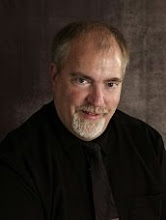Mainline denominations meet
This week's newspapers report on proceedings in some of the major Christian denominations in our country. Among Episcopalians, who defied the wishes of the broader worldwide Anglican communion by electing a female bishop, the issue continues to be the church's position on homosexuality. Should a man who divorced his wife in order to "set up shop" with his gay lover be allowed to continue to serve as a bishop in the church? Sounds like a far cry from "Among you there must not even be a hint of sexual immorality."
Among Presbyterians, the issue of ordination of gay clergy is front and center as well. According to this story from the USA Today,
In a plan devised by a special task force, Presbyterians would keep on the books a church law that says all office-holders must observe either fidelity in heterosexual marriage or else chastity in singleness.
The panel spent years considering the issue before introducing the proposal, which is designed to hold together Presbyterians who support full equality for homosexuals and those who believe change would violate biblical teaching.
As we read about the decline of the Church in the Middle Ages, it cannot be denied that the farther a church removes itself from the Word of God and sets up its own opinions and traditions as authoritative, the less it can expect God's blessings. So it is amazing that one of the Presbyterians' advocates for full equal rights for homosexuals states, "There will be no mass exodus. We've heard all these threats before. ... This is not an issue to divide a denomination over. It doesn't touch the core of the faith."
That all depends on what is meant by "core of the faith." When the Bible ceases to be acknowledged as the divinely inspired and inerrant word of God, but instead is viewed as a book that simply contains the "word of God" inside somewhere, and experts need to sift out the human from the divine, that touches the core of the faith. And the issue that will continue to cause true, Bible-believing Christians in the Presbyterian church to remove themselves from that association will not be some mean, hateful sense of homophobia; it will be the realization that their church refuses to follow the Word of God.
In this week's chapter from How Should We Then Live, you read about the late Middle Ages and the inherent pessimism of humanism. Express your answers to the focus question in the comment section.


<< Home